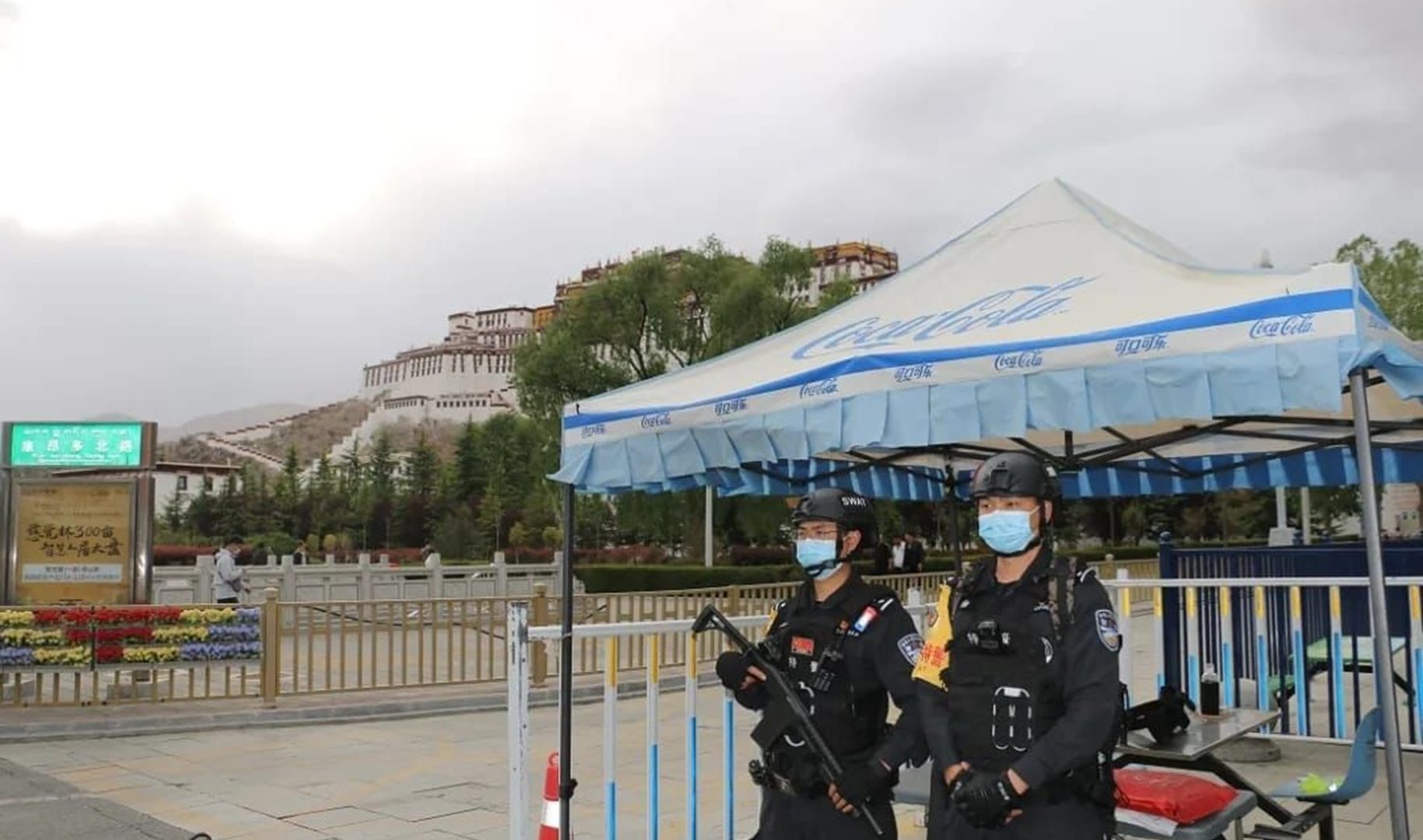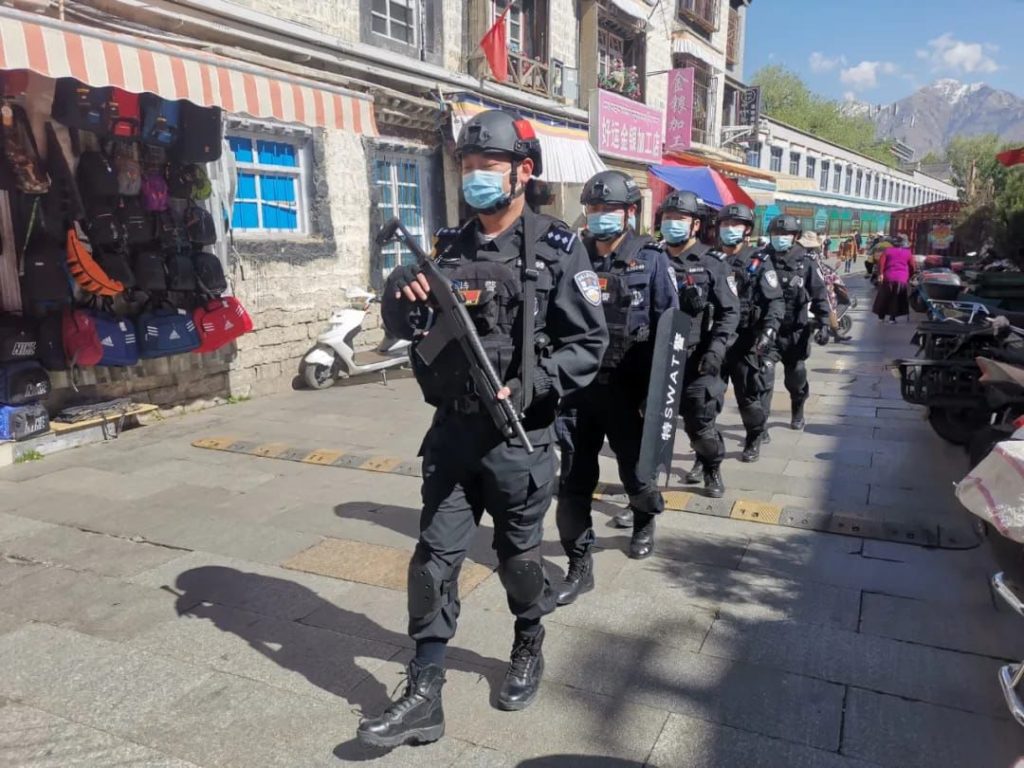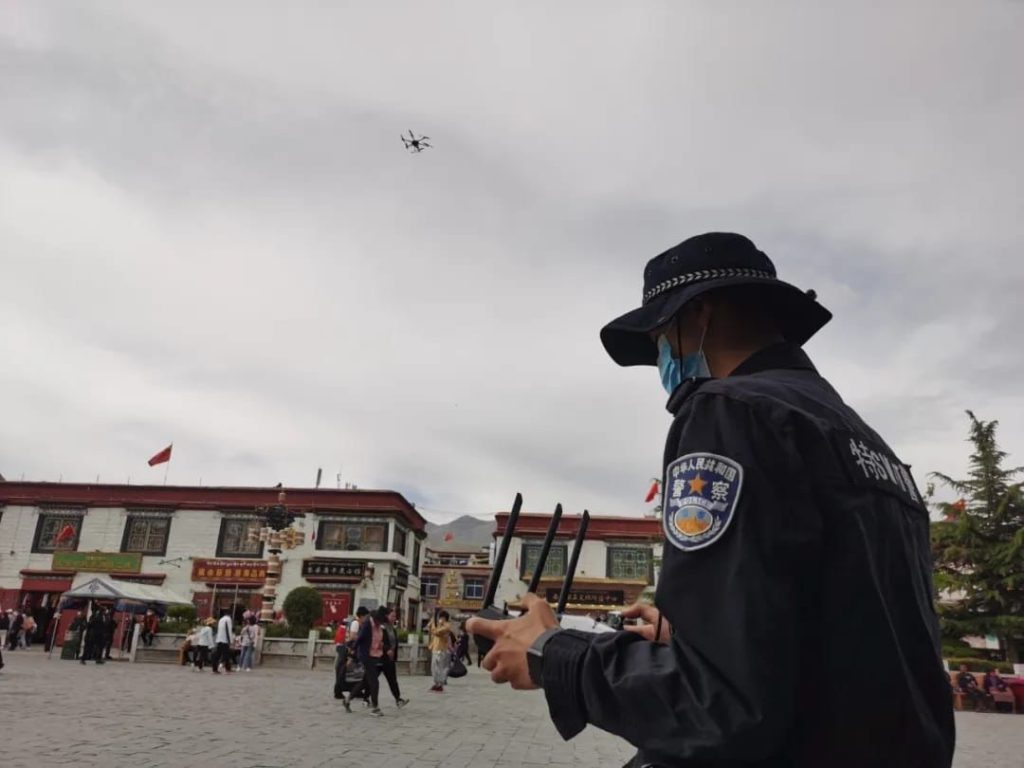
China steps up security across Tibet ahead of Dalai Lama’s birthday
Images from the Tibetan capital Lhasa show drones, checkpoints and police
In anticipation of strong expressions of allegiance by Tibetans to their spiritual leader His Holiness the Dalai Lama ahead of his upcoming birthday in July, Chinese authorities have beefed up security in the heart of Tibet’s capital Lhasa as part of preemptive measures at stability maintenance.
The measures include setting up mobile security checkpoints at every street corner to conduct random searches of Tibetans and to check their phones. The authorities are also resorting to flying drones over the city to monitor the movement of Tibetans during this sensitive time.

Armed police march through a marketplace in Lhasa
Despite a standing ban on observing significant cultural and historical days such as Tibetan National Uprising Day and the birthday of the Dalai Lama – who the Chinese government has sought to portray as a dangerous separatist – Tibetans continue to defy this ban, against huge risks to themselves. Tibetans have openly marked this day in the past with gatherings, prayers and celebrations.
The Chinese authorities forbid mass gatherings and celebrations, even restricting Tibetans from visiting monasteries for religious purposes on those days. In the last decade alone, many Tibetans have been arrested and tortured for conducting even simple harmless religious acts such as the burning of juniper, accused of performing “separatist” acts and charged with state security crimes.

Police operating a drone in the sky above Lhasa
Tibet Watch has learned that police checkpoints have been installed across Lhasa, including on all sides and streets around the Jokhang Temple, Potala Palace and three monastic universities: Gaden, Sera and Drepung.
Furthermore, security personnel are conducting random searches of Tibetan people’s bags and checking their phones for any incriminating evidence, such as photos of His Holiness the Dalai Lama.
Police are also monitoring Tibetan pilgrims carrying out circumambulations around religious sites. Groups of two or more Tibetans are being questioned about where they have come from and where they were headed, with police demanding that they produce their identity cards.
Information supplied by Tibet Watch

